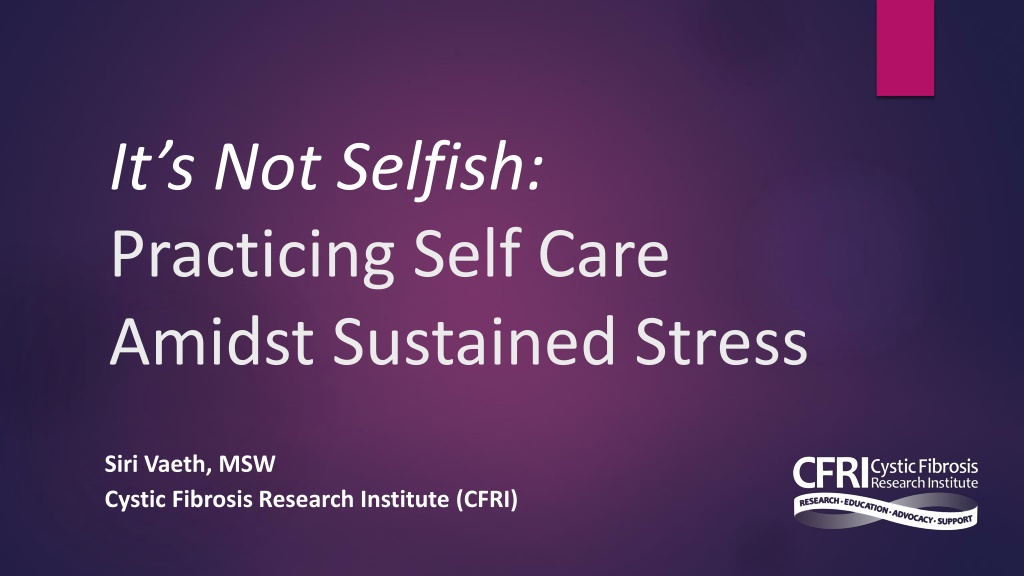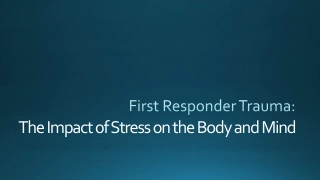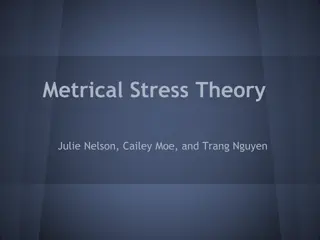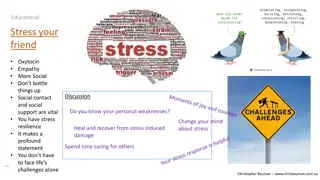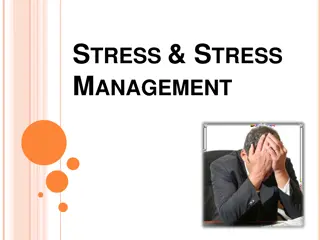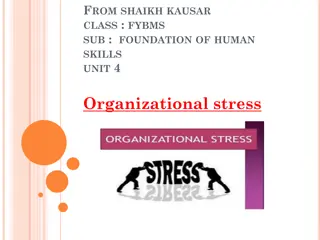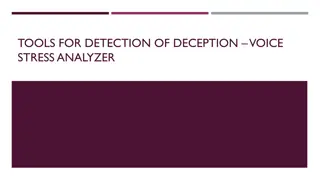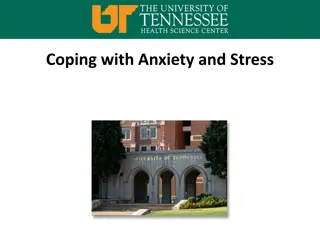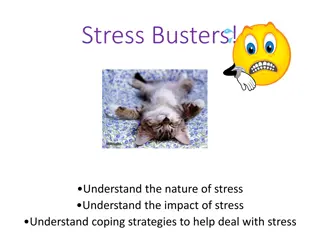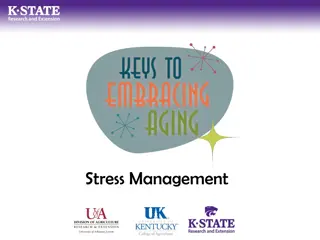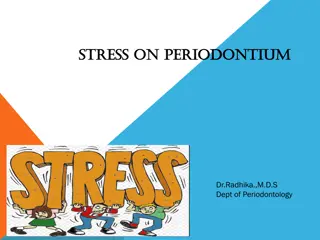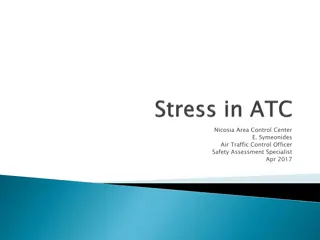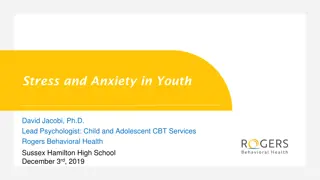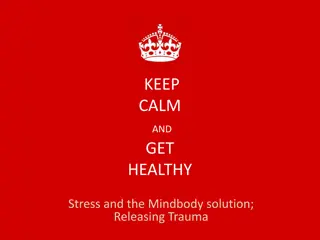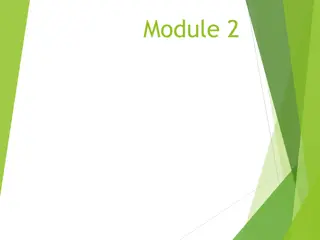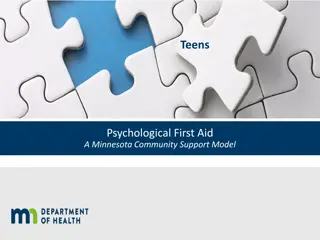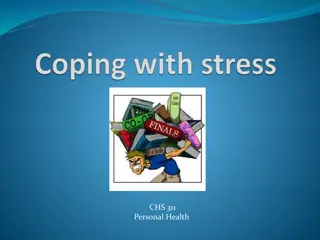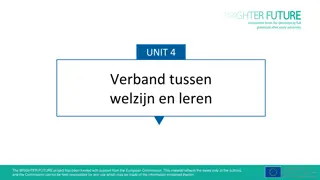Understanding the Impact of Sustained Stress on Health and Well-being
This presentation explores the effects of sustained stress on the body, particularly in the context of caring for individuals with chronic conditions like cystic fibrosis. It delves into the physiological responses to stress, the unavoidable stressors faced by caregivers, and the detrimental impacts on various body systems. The discussion highlights the importance of practicing self-care amidst ongoing stress to prevent cognitive decline and maintain overall well-being.
Download Presentation

Please find below an Image/Link to download the presentation.
The content on the website is provided AS IS for your information and personal use only. It may not be sold, licensed, or shared on other websites without obtaining consent from the author. Download presentation by click this link. If you encounter any issues during the download, it is possible that the publisher has removed the file from their server.
E N D
Presentation Transcript
Its Not Selfish: Practicing Self Care Amidst Sustained Stress Siri Vaeth, MSW Cystic Fibrosis Research Institute (CFRI)
Disclosures 1 and 2 1. There are no relationships to disclose related to this presentation. 2. Self care is a practice and I am also practicing.
Stress Upon the Body: Flight/Fight/Freeze When faced with a threat, the hypothalamus sounds the alarm, triggering the adrenal glands to release hormones including adrenaline and cortisol. Adrenaline increases our heart rate, raises blood pressure and readies the body s energy supplies. Small increases in cortisol have positive effects on our stress response: a burst of energy, heightened memory and lowered sensitivity to pain.
The Unavoidable and Sustained Stress of CF Worsening health of self/loved ones/patients you care for; Experiencing/witnessing medical trauma; Frustrations with adherence to therapies or life choices/behaviors that worsen CF outcomes; Insurance nightmares; Financial challenges, marital/partner relationship issues, other health challenges, stressful home lives; Culture of Overwork
Sustained Stress Impacts Every System in the Body Cardiovascular Impact: Raises blood pressure; increases heart attack/stroke risk; causes irregular heartbeat; Inflammatory Response: Triggers inflammation leading to weakened immune response Digestive Impact: Causes IBS symptoms; constipation; bloating; Cognitive Functioning: Impacts memory; judgement
People with elevated stress levels are more likely to experience a decline in cognitive function, affecting their capacity to remember, concentrate and learn new things.
Researchers studying caregivers of chronically ill children found that their telomeres were 10 years shorter than their chronological age would have A telomere is a region of repetitive DNA sequences at the end of a chromosome. Telomeres protect the ends of chromosomes from damage. predicted. In other words, the chronic stress of caregiving aged them by 10 years. - Epel, et al, 2003
Impacts and Coping Mechanisms Impacts: Coping Mechanisms: Poor sleep Alcohol/drug use Poor concentration Eating too much/too little Memory loss Smoking Weight gain/loss Self criticism Depression Compulsive spending Anxiety Withdrawal from others Irritability Decreased empathy Diminished patience Work Burnout
Self care is ongoing. It s a necessity, not a reward, and should be intertwined into everything you do. - Victoria Cloud
In search of endorphins: Google Self Care and Find: Take a relaxing vacation; get a facial/massage/manicure/pedicure; seek therapy .
Simple Steps: Self Care Toolbox Add 1-3 self care activities to your daily to do list. Eat a healthy diet - Elevated cortisol can make you crave carbs Make regular physical activity a part of your day Nurture your friendships - Isolation increases cortisol levels Try to laugh - Laughter releases endorphins Unplug We spend more screen time daily than sleeping Practice Gratitude This builds resilience; reduces depression Take 3-minute stretching/breathing breaks throughout the day Practice Mindfulness and/or Meditation Practice Self Compassion at work and in personal life
